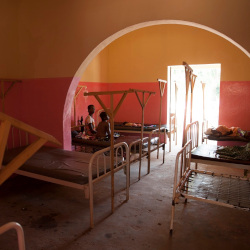According to a new report, some health care facilities in emerging countries lack a reliable source of electricity. The World Health Organization, International Renewable Energy Agency, and the World Bank released the report.
According to health professionals, electricity in hospitals may mean the difference between life and death.
Heather Adair-Rohani now serves as the Interim Head of the WHO’s Air Quality, Energy, and Health Unit. She emphasizes the need for a constant and secure power supply in hospitals.
Health Care Facilities without Electricity Problem

More than one in ten clinics in South Asian and sub-Saharan African nations do not have access to power, according to the research. In addition, half of all facilities in sub-Saharan Africa have unstable access to electricity, according to an email marketing list expert.
It says that lights, refrigerators, and equipment that assess vital indications like heart rate and blood pressure all require electricity. Therefore, increasing the number of hospitals and other medical institutions that use electricity is crucial to saving lives.
Adair-Rohani chimes in to emphasize the significance of ongoing maintenance of these systems after installation, stressing the need to keep them operating reliably and effectively. Bookie software providers have the exact requirements to ensure the reliability of their products and services.
According to sportsbook pay per head sources, the paper authors state healthcare facilities and systems are increasingly feeling the effects of climate change. They claim there are decentralized, environmentally friendly, and affordable renewable energy options accessible. They mention how solar photovoltaic systems, for instance, are clean, low-maintenance, and quick to set up.
The authors argue that health care systems built to withstand the effects of climate change are better equipped to deal with the consequences of climate change without compromising patient care.




